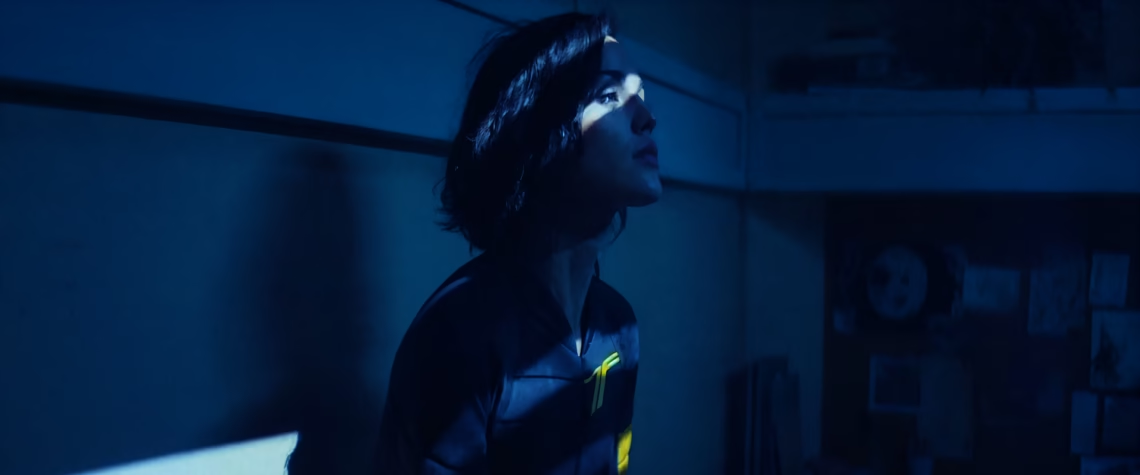Ash: A Visually Striking Dive into Sci-Fi Horror
Ash, directed by the visionary Flying Lotus, is a genre-bending fever dream where elements of sci-fi, horror, and psychological thriller intertwine in a vividly colorful dance of isolation and paranoia.
The film unfolds aboard a remote alien space station, casting viewers into an unsettling narrative where the protagonist, Riya Ortiz (played by Eiza González), awakens to haunting amnesia after witnessing her crew’s mysterious slaughter.
As she grapples with fragmented memories, she encounters Brion Cargyle (played by Aaron Paul), a man who claims he is there to rescue her.
However, his true intentions quickly become murky as the stability of Riya’s perception of reality unravels.
Flying Lotus’s directorial debut, Ash, immerses audiences in a palpable atmosphere through its chilling premise and stunning visual artistry.
Eiza González delivers a hauntingly grounded performance as Riya, embodying a multi-faceted character who navigates between her buried memories and the creeping intent of those around her.
On the other hand, Aaron Paul brings layers of complexity to Brion, expertly maintaining an unsettling ambiguity that keeps the audience questioning his motivations, whether he is a savior or part of Riya’s growing paranoia.
One of the film’s standout features is its exceptional use of lighting and color, intertwined with meticulously placed shadows.
This goes beyond mere aesthetic appeal; it forms an essential part of the film’s storytelling and atmosphere. The vibrant, often surreal hues contrast sharply with oppressive darkness, significantly enhancing the film’s mystery and dread.
Each meticulously crafted visual element amplifies Riya’s psychological tension, from the eerie luminescence of an alien world to the harsh lighting within claustrophobic compartments, making every discovery and impending threat feel compellingly immediate.
From its very first frame, Ash establishes an unmistakable priority on atmosphere.
The cinematography envelops the viewer in an otherworldly palette of soft neon tones and unsettling shadows that hang ominously in the air. Every corridor pulsates with an undercurrent of dread, while the shadows loom with intent.
Flying Lotus employs light not just as a tool for illumination, but as a narrative device, each beam and dark corner conveying unspoken fear and tension more effectively than dialogue ever could.
He isn’t just directing a film; he’s creating a living painting that holds the audience captive.
Concerning pacing, Ash does have moments where the narrative may meander, particularly in the second act, which some may find excessively indulgent in its exploration of dream logic and surrealism.
However, this pacing feels almost deliberate; the film isn’t focused on providing clean resolutions or clarity. Instead, it encourages immersion into a disquieting journey of self-doubt and existential mistrust.
While some plot threads may be loose, the overarching mood is undeniably tight, invoking comparisons to films like “Annihilation” with its cerebral narrative and “Under the Skin” with its abstract storytelling, all sprinkled with elements of body horror and cosmic dread.
The score, crafted by Flying Lotus himself, adds another vital layer of unease to the experience.
Electronic pulses echo through the void of space; sometimes melodic, at other times dissonant, it never fails to evoke a profound sense of discomfort.
This soundscape enhances the overall visual tone, immersing viewers into Riya’s disorienting world.
Ultimately, Ash may not resonate with all audiences, but it is a film that thrives in its messiness, hypnotic cadence, and unapologetically strange narrative approach.
However, for those daring enough to abandon conventional structures and embrace the surreal, it offers a chilling yet beautiful descent into the realm of sci-fi horror.
Rating: 8/10
It is not a perfect narrative, but it’s a great journey, a movie that leaves Ash lingering in your consciousness long after the credits roll.


